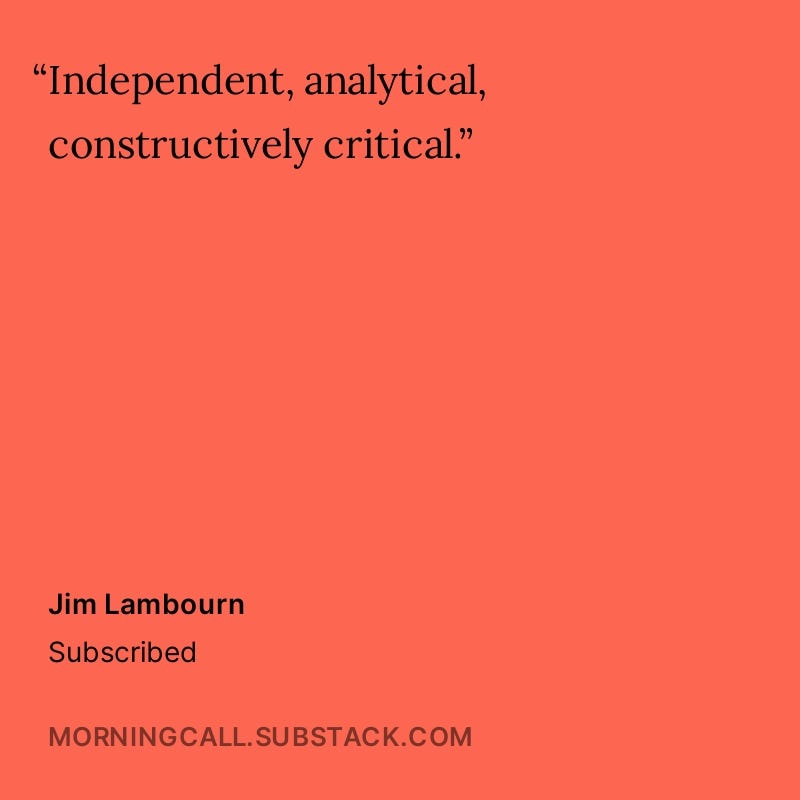Morning Call: The tragedy of monarchy
The House of Windsor will survive, but at what cost to the nation?
Good morning. This is Lewis Goodall. The British monarchy has had its shakiest year for decades. The King is old and has fallen ill, his second son, Harry, is estranged, and the internet has spent weeks concocting and spreading conspiracy theories about the Princess of Wales.
Will the monarchy survive all this? Find out below.
Sign up to Morning Call’s paid tier here:
Will it survive? Almost certainly. The House of Windsor has been through worse and survival is what it does. The reaction to the sad news of Princess Catherine’s cancer diagnosis reminds us why its roots run deep. Monarchy, uniquely as a form of politics, can embody and personify. The King and the Princess of Wales have cancer; only the darkest of hearts could fail to be moved by it. As they suffer, they remind each of us how our own families have or might yet handle similar circumstances. Monarchy can elicit rage, like any form of government, but perhaps uniquely, it can elicit personal sympathy and solidarity too, something few of us would ever feel about a cabinet or ministry. Before feminism and the civil rights movement, monarchy has always known that the personal is the political. And that is the problem.
I’ve long been sceptical about monarchy. I loathe it when people say its pomp and ceremony is “what Britain does best”. I worry about the infantilising effect it has on our politics and what it says about unyielding British attitudes to class and privilege. But constitutional monarchy works. It provides a through line in our national life. I can see too that an apolitical family (in so far as that can ever be true), on whom all kinds of personal preferences can be projected, is a useful adhesive; a bind between us in an age where not much binds us. If I were forced to reckon with the monarchy’s abolition, I would worry about the removal of one of the last British institutions that retains the power to inspire and cohere, and about what might replace it.
The institution works for us. I wonder whether the same can be said for them. The Windsors live in luxury, in palaces, with courtiers and planners and servants. But it is a prison of gold. In exchange for opulence and prestige a price is paid – the fusion of family and state. It is a cruel meld, which means self and family and country become indivisible, and when division is attempted, chaos beckons. Catherine wants privacy? Perfectly reasonable. Could she have it? No. There is no privacy in the cage; she belongs to the state, to us. When she vanishes from the public’s gaze, the (social) media vultures descend.
As long as the monarchy remains in its current form – a realm of the state that is no longer partially obscured by mystery – none of this will ever change. Some of those bleating most loudly about the Princess’ privacy are those biographers and royal hacks who make a living intruding on a family’s life and its most personal details. They, like many of us, delude ourselves about what modern British monarchy is – a family circus, for our entertainment, amplified by a media that will, as Tom Nairn once noted, “go on stuffing royalist polyfilla into the cracks as long as they can”.
A section in Prince Harry’s memoir Spare illustrates this cruelty. In it he recounts a story where, in some desperation about his declining familial circumstances, he arranges to return from Los Angeles to speak to the Queen. By his telling, the late sovereign told him she would love to see him. Upon arriving in the UK he was told by a courtier that she was no longer available. The Queen as state, rather than Elizabeth Windsor as grandmother, had prevailed.
Keep reading with a 7-day free trial
Subscribe to Morning Call to keep reading this post and get 7 days of free access to the full post archives.







